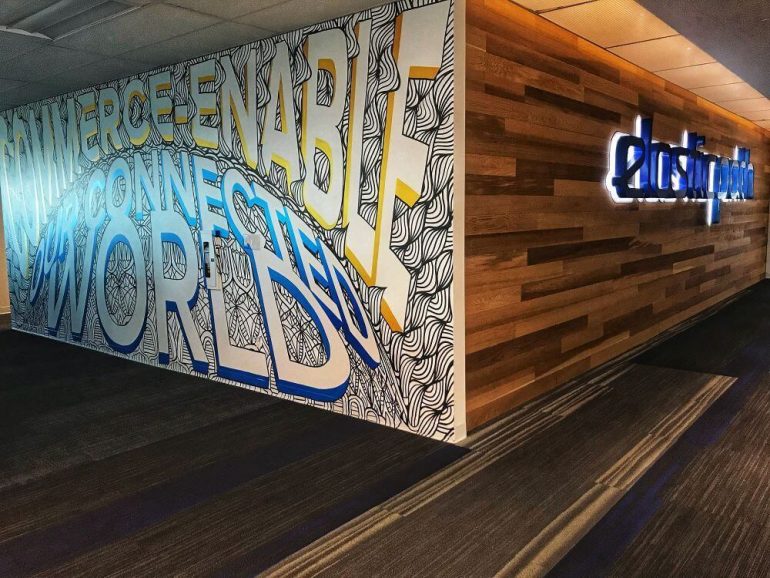Vancouver-based Elastic Path, which looks to “future-proof” e-commerce enterprises with its API-based platform, has acquired Boston-based Moltin. The terms of the acquisition were not disclosed.
“Businesses operating these complex business models need solutions that are purpose-built for how those brands operate.”
Elastic Path said the deal will expand its time zone coverage for customers operating globally. All of Moltin’s employees have joined Elastic Path, including engineering, customer support, sales, marketing, and operations departments. Elastic Path will also maintain Moltin’s offices in Boston and Newcastle, England. Elastic Path said the companies have complementary development strategies as well as customer support locations.
“Moltin brings a considerable amount of net-new technology to Elastic Path, including multi-tenant SaaS microservices, intuitive business user tooling, and new ready-to-use commerce experiences,” Harry Chemko, CEO and co-founder of Elastic Path, told BetaKit.
Elastic Path was founded in 2000 as a custom development shop building open source business applications and websites. The company was early to jump on the headless commerce train, when the company’s then-new CTO, Sal Visca, predicted there would soon be a higher demand for commerce solutions that could be embedded into digital experiences.
Headless commerce is an approach that separates an e-commerce platform’s frontend design from the backend infrastructure. This is done to allow full-stack e-commerce solutions more flexibility when dealing with a complex set of business touchpoints.
RELATED: Emerge Commerce purchases UnderPar Group for $12 million in largest acquisition to date
Elastic Path shifted its focus in 2011 to an API-first architecture. Its main offering is Elastic Path Commerce, a platform that integrates into technology stacks to help companies build retail experiences based on emerging technology. The platform has recently been optimized to include greater access to multi-tenant SaaS microservices, business user tooling, and new commerce experiences.
With headless commerce, only the system frontend and backend are decoupled. However, a microservices architecture, while similar to headless, allows the platform and service-oriented architecture to be fully decoupled. By acquiring Moltin, Elastic Path’s goal in acquiring Moltin is to be able to give customers the ability to leverage microservices.
“Previously, Elastic Path’s abstraction layer, Cortex, supported microservices, but the acquisition of Moltin and their library of pre-built and ready-to-use commerce experiences makes it much easier for companies to take advantage of microservices,” Chemko noted.
Elastic Path claims it is now the only e-commerce platform to provide secure, enterprise-grade deployment options across SaaS, single-tenant SaaS, private cloud, and on-premise. Pilon, another solution that markets its own API-first and microservices-based approach to its e-commerce solution, has yet to launch.
Although Elastic Path has worked with a number of consumer-facing clients, such as the Carnival Corporation, Elastic Path’s uses cases also span B2B, B2B2C, and B2B2B. Building out its B2B offering is supported in large part by a $43 million Series B round closed in 2018.
RELATED: Coveo raises $227 million CAD to pursue “aggressive” growth in AI e-commerce market
Through the Elastic Path’s “new and improved” platform, users can now launch new revenue channels using a library of commerce experiences including Alexa Voice Assistant, a Facebook chatbot, self-checkout for retail stores and pop-up events, augmented reality, and IoT.
The company is still bullish on Visca’s earlier prediction, arguing that the global demand is growing for flexible and scalable enterprise commerce solutions. Canadian startups like Bold Commerce and Shopify also provide headless commerce offerings. Bold Commerce, based out of Winnipeg, has told BetaKit of its desires to push toward headless commerce, while Shopify also has a headless commerce offering.
Chemko said he did not consider Moltin a competitor to Elastic Path prior to the acquisition, rather the companies’ have both been strongly on board with a headless approach to commerce. This is why he anticipates their solutions will blend together well.
“We see the next commerce revolution centring around new digital business models across B2B, B2B2C, and B2B2B commerce,” Chemko said. “Businesses operating these complex business models need solutions that are purpose-built for how those brands operate and we’re committed to creating technology that supports the kinds of experiences that can transform how those organizations do business online.”
Image source Glasssdoor


